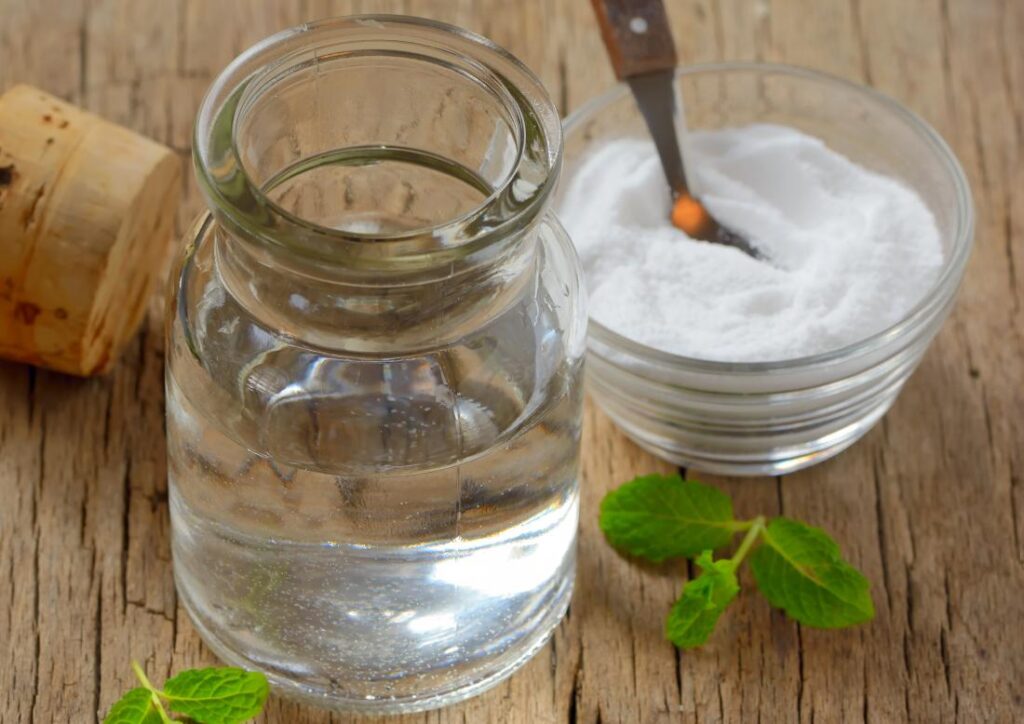When it comes to oral health, people tend to focus only on their teeth.
What many don’t realize is that the gums are just as important, and should be given as much attention.
Swollen gums, which are a common problem, can be caused by poor nutrition, viral or bacterial infection, gingivitis, poorly fitted dentures, and tooth decay, according to Medline Plus.
In cases of gingivitis, the gums don’t only become inflamed but also tend to bleed.
If left untreated, this can progress to a more serious gum infection and eventually lead to tooth loss, something that nobody wants to experience.
Before this happens, treat gingivitis with regular professional dental cleaning and daily brushing.
To get quick relief from the pain and discomfort brought about by this condition, here are some natural techniques that you should try.
RELATED: 12 Pain-Relieving Essential Oils for a Toothache
1. Salt Water
Do you know the remedy that people commonly use for sore throat?
As it turns out, it’s also a viable solution for gum inflammation.
In fact, salt water rinse is an old-fashioned yet effective home remedy for swollen gums.
Also called a saline solution, it has been used since the ancient times to dehydrate and destroy bacteria inside the mouth that cause infection [1].
In a study performed by Indian researchers, three groups of children with gum problems were asked to gargle either saturated saline rinse, 0.02 M alum mouthwash, or a placebo (distilled water) for 21 days [1].
When the treatment period was over, it was found that the children who used the saline rinse and alum rinse had a significant reduction in bacteria count in their saliva [1].
That’s not all, aside from combating bacteria, this solution also works to soothe the swollen gums.
What You’ll Need:
- 1 teaspoon of salt
- 1 glass of warm water
Recommended Directions:
- Add salt to warm water.
- Gargle twice a day to get rid of swollen gum due to toothache and inflammations.
2. Clove Oil
Clove is most popular as remedy for toothache.
When someone is in great pain due to tooth decay or cavities, this herb is usually recommended.
That’s because it has been found to have analgesic effects that work for many types of pain disorders.
Oil extracted from clove, for example, is commonly applied on the skin to provide pain relief and speed up healing [2].
Clove’s most active compound called eugenol is replete with anti-inflammatory, antioxidant and antibacterial properties [3].
It was highly effective in suppressing the production and release of pro-inflammatory cytokines [3].
This compound is also immunostimulatory, which means that it can help boost the immune system to make it easier for the body to combat infections [3].
A 1994 study found that eugenol can effectively treat oral infectious diseases that can cause swollen gums [4].
What You’ll Need:
- 2 to 3 drops of clove essential oil
- 1/2 teaspoon of olive oil
Recommended Directions:
- Combine clove oil and olive oil.
- Apply oil on your gums using a cotton ball.
- Press gently for one to two minutes.
- Do this remedy twice a day for one week.
3. Mustard Oil
Mustard is an excellent source of essential vitamins and nutrients.
The oil extracted from the seeds contains vitamin A, vitamin E, omega 3 fatty acids, calcium, phosphorus, magnesium, potassium, and protein.
It’s also loaded with beneficial antioxidants that can do so much for your health.
Rich in sterols, phenols and flavonoids, mustard oil can successfully inhibit the growth of infection-causing oral pathogens [5].
It also contains glucosinolate, another anti-microbial that also acts as an anti-inflammatory [6].
Moreover, a clinical trial has found that massaging the gums with mustard oil stimulates blood flow to relieve inflammation and treat gum infections [7].
What You’ll Need:
- 1 teaspoon of mustard oil
- Pinch of salt
Recommended Directions:
- Add salt to the mustard oil.
- Mix well.
- Wash your hands thoroughly.
- Dab your finger to the oil mixture.
- Massage oil onto the gums for four to five minutes.
- Repeat twice a day for one to two weeks.
4. Castor Oil
Considered by many as the “father of holistic medicine of the 20th century” was often heard saying that castor oil is a good way to treat a wide range of diseases.
A vegetable oil widely used in Africa and India, castor oil has since then become known for its medicinal uses, thanks to its anti-inflammatory and antibacterial properties.
It can be used to alleviate arthritis, migraine, congestion, high blood pressure, and menstrual pain, among others.
Those who suffer from gum inflammation can also find relief in this remedy.
The presence of phytochemicals such as tannins and flavonoids make it a potent anti-inflammatory [8].
Moreover, it has been listed as one of the most effective analgesics among various ethnomedicinal plants, as reported in a 2010 study [9].
This means that castor oil works both in toning down inflammation and relieving pain.
What You’ll Need:
- 1 teaspoon of castor oil
Recommended Directions:
- Apply castor oil on swollen gums.
- Gently rub for three to five minutes.
- Repeat twice daily for one to two weeks.
5. Hydrogen Peroxide
The uses of hydrogen peroxide abound.
As a natural antiseptic, it has long been used for cleaning and disinfecting wounds.
It is also used for keeping the home sanitized, bleaching the hair, and clearing up acne, among others.
Now, did you know that hydrogen peroxide has also been used in dentistry for more than 70 years [10]?
It has been found that topical application of hydrogen peroxide promoted healing and prevented infection due to its anti-microbial properties [10].
Hydrogen peroxide’s antibacterial activities inhibited the growth, metabolism, and spread of oral streptococci that cause infection and gum inflammation [11].
In other words, this remedy is a safe and effective way to control oral pathogens that cause the gums to become swollen.
What You’ll Need:
- 1 cup of 3 percent hydrogen peroxide solution
- 1 cup of water
Recommended Directions:
- Mix water and hydrogen peroxide.
- Gargle solution for 30 seconds.
- Gargle warm water for another 30 seconds.
- Use this remedy three times a week.
- Be careful not to swallow the solution.
6. Oil Pulling with Sesame Oil
Known for its many curative purposes, sesame oil extracted from the seeds of this plant, has been found effective in stimulating bone growth, lowering blood pressure, promoting heart health, warding off depression, preventing cancer, and boosting digestion.
It’s packed with beneficial compounds such as phytosterols, phytic acid and magnesium.
As if these benefits aren’t remarkable enough, sesame oil also happens to be one of the best oils to use for oil pulling.
A traditional Indian remedy, oil pulling refers to the practice of gargling oil inside the mouth to resolve gum inflammation, bad breath, tooth decay, and throat dryness [12].
This Ayurvedic technique works by preventing bacteria from growing and spreading in the oral cavity [13].
Several studies show that not only does it help treat many types of oral problems, it can also improve dental health [14, 15, 16].
Even if your gum inflammation has been completely resolved, you can go on to use sesame oil for oil pulling to promote overall dental health.
What You’ll Need:
- 1 tablespoon of sesame oil
Recommended Directions:
- Swish sesame oil inside your mouth for 20 minutes.
- Spit out the oil.
- Gargle warm water for 30 seconds.
- Brush your teeth.
- Do this everyday before brushing your teeth in the morning.
7. Turmeric
Some say that turmeric is the world’s “most powerful herb” in terms of medicinal value.
Countless bodies of research have confirmed its healing capabilities for a diverse array of ailments.
It is way ahead of other widely researched medicinal herbs like ginger, garlic and cinnamon.
It even works more effectively than many prescription drugs such as antidepressants, anticoagulants, anti-inflammatory and pain killers, among others.
Turmeric’s anti-microbial, antiseptic, anti-inflammatory and immunostimulant properties, meanwhile, have made it highly useful in the field of dentistry [17].
When it comes to swollen gums, this age-old remedy helps by inhibiting bacterial activity, thereby reducing pain and toning down inflammation.
This can be attributed to turmeric’s active compound called curcumin, which is known for its strong anti-inflammatory response [18].
This compound successfully inhibits the production of pro-inflammatory enzymes that trigger this natural body reaction.
What You’ll Need:
- 1/4 teaspoon of turmeric powder
- 1/2 teaspoon of water
Recommended Directions:
- Mix turmeric powder with water to form a paste.
- Apply turmeric paste on your gums.
- Let it sit for five minutes.
- Massage gently for one minute.
- Gargle warm water to rinse your mouth.
- Follow this remedy three to five times a week, for two weeks.
8. Baking Soda
Sodium bicarbonate, more popularly known as baking soda, is well known for its countless household and medicinal purposes.
At home, it is used for cleaning and disinfecting the surroundings.
Since it is chemical-free, you can have a peace of mind knowing that you’re not putting your family at risk.
Interestingly, baking soda also plays a vital role in dentistry.
Many have found it effective as a teeth whitener, but of course, it does more than that.
Among its many uses is that it helps relieve gum inflammation by fighting oral infections such as periodontal disease [19].
Baking soda has strong anti-microbial properties, and it’s due to its alkaline nature that prevents bacteria and microbes from thriving and spreading [20].
It has strong inhibitory effects against various types of oral bacteria.
What You’ll Need:
- 1 tablespoon of baking soda
- 1 tablespoon of water
Recommended Directions:
- Combine baking soda and water.
- Rub paste on your gum line.
- Massage gently for one minute.
- Rinse with warm water.
- Repeat every day for one to two weeks to get quick relief from gum pain and swellings.
RELATED: Baking Soda for Constipation Relief : 4 Quick Remedies
9. Aloe Vera
Aloe vera has been well-documented for its healing and cleansing effects on the body.
When it comes to wound healing, it is always on top of the list of remedies.
Experts agree that it’s also a useful alternative cure for oral diseases and infections that cause swelling of the gums, among other painful symptoms.
Described as “nature’s soothing healer to periodontal disease”, aloe vera has been proven effective in the prevention and treatment of dental caries and gum problems [21, 22]
A 2012 study explains that many of its properties contribute to this role, and these include being an antimicrobial, anti-inflammatory, and immune booster [22].
Researchers examined the effects of aloe vera extract on 20 isolates of pathogenic oral bacteria such as Streptococcus mutans, Aggregatibacter actinomycetemcomitans, Bacteroides fragilis, and Porphyromonas gingivalis [22].
It was reported that at minimum concentration, aloe vera was highly effective in neutralizing the bacterial strains and keeping them under control [22].
What You’ll Need:
- 1 aloe vera leaf
Recommended Directions:
- Cut the aloe vera leaf.
- Squeeze to let out the gel.
- Apply gel on your gum using a clean finger.
- Massage gently for two minutes.
- Rinse your mouth with warm water.
- Do this remedy several times a day until swelling subsides.
RELATED: 11+ Health Benefits of Aloe Vera Oil (Backed by Scientific Evidence)
10. Tea Tree Oil
There are many medicinal purposes associated with tea tree oil, and one of these has something to do with reducing gum inflammation.
Studies have found that tea tree oil has antibacterial effects that help combat many types of inflammation-causing oral problems like gingivitis and plaque [23, 24].
In 2004, a team of scientists from Australia investigated the efficacy of tea tree oil as treatment for dental plaque and gingivitis [24].
A group of 49 non-smokers diagnosed with severe and chronic gum inflammation were given either 2.5 percent tea tree oil gel, chlorhexidine gel, or a placebo [24].
The participants were asked to apply these treatment solutions with their toothbrushes twice a day [24].
Both bleeding and gingival index were significantly reduced in the tea tree oil group [24].
Plus, there were no side effects that have been reported [24].
With these findings, we can see that tea tree oil can give quick relief from swollen and irritated gums.
What You’ll Need:
- 2 to 3 drops of tea tree oil
- 1 glass of warm water
Recommended Directions:
- Mix tea tree oil into the warm water.
- Rinse your mouth with this solution two times a day.
- Repeat the method for two to three weeks.
RELATED: 12 Incredible Health Benefits of Tea Tree Oil (Backed by Evidence)
11. Peppermint Oil
People make the mistake of thinking that the only role peppermint oil plays in dentistry is to treat halitosis or bad breath.
There’s more to it than freshening up one’s breath.
As proven in several studies, this oil has the ability to control bacteria inside the mouth, and prevent them from causing infections [25, 26].
It’s for this reason that people should also rely on this oil for treating swollen gums.
What You’ll Need:
- 3 drops of peppermint oil
- 1 glass of water
Recommended Directions:
- Add the oil into the glass of water.
- Gargle this solution twice a day for three weeks as an effective home remedy for swollen gums.
Bottom Line
Swollen gums are not only painful and annoying. This problem can also affect your self-confidence and daily activities.
To prevent this from happening, make use of these tried and tested remedies that require simple and easy-to-find ingredients.
Let us know how you progress with the above discussed home remedies for swollen gums. Give your feedback in the comment section.
READ NEXT: 11 Home Remedies for Wisdom Tooth Pain for Immediate Relief





